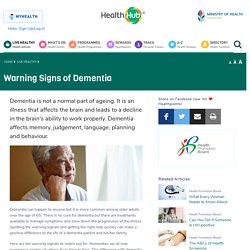

Some individuals voluntarily seek solitude, which could engage them in positive feelings as they have more time for themselves. On the other hand, some may be isolated involuntarily, due to the mismatch in the individual's demand for social support, and the human or situational capacity of their kins to offer it. Coronavirus: Elderly hit hard by social isolation amid circuit breaker measures, Health News. A needle and the television set - these two objects have been keeping 83-year-old Nellie Woo company from morning to night for the past week while she is holed up alone at home.
She used to enjoy playing bingo and exercising with her elderly neighbours at the Senior Activity Centre (SAC) downstairs, as well as chatting with volunteers who visited her studio flat. Now that all activities for seniors - including home visits - have ceased due to strict circuit breaker measures, Madam Woo is feeling lonely and emotionally down. She thinks about suicide sometimes, and has spent so much time staring at her patchwork and TV lately that her doctor had to give her antibiotics for dry eyes. For such elderly people, the ills that come with social isolation pose a significant health risk, say some seniors and social workers. Out of the 208,000 people who live alone in Singapore, at least a quarter of them are elderly. In 2016, there were 47,000 seniors aged 65 and above who lived by themselves. Seniors felt less socially satisfied, more isolated during Covid-19 circuit breaker period: Survey, Singapore News. SINGAPORE - Social isolation during the circuit breaker period resulted in lower social satisfaction levels for senior citizens, according to results from a monthly survey of about 7,500 people aged between 55 and 75 here.
Social satisfaction levels dipped by about 4 per cent in May when compared with data from January. In particular, for senior citizens living with others, satisfaction levels fell to the pre-circuit breaker levels of peers living alone, while those living alone saw even lower satisfaction levels as safe distancing measures made it more difficult to find support from friends and the community. As of July, while satisfaction levels have rebounded after the circuit breaker period, which was from April 7 to June 1, they are not back to the levels they were at before.
As Singapore's population ages, the proportion of those who remain single and live alone will increase, said Prof Straughan, a sociologist and former Nominated Member of Parliament. Physical inactivity. Loneliness. Quality over quantity. Loneliness and social isolation are different. Increased risks of contracting cardiovascular disease. Warning Signs of Dementia. Dementia can happen to anyone but it is more common among older adults over the age of 65.

There is no cure for dementia but there are treatments available to manage symptoms and slow down the progression of the illness. Spotting the warning signals and getting the right help quickly can make a positive difference to the life of a dementia patient and his/her family. Here are ten warning signals to watch out for. Remember we all may experience similar situations from time to time. The difference with dementia is that the behaviours described below will affect the patient's ability to live and function safely and independently and progressively get worse. Related: Understanding Dementia Memory Loss that Affects Day-to-Day Functions Persons with dementia often forget things they have just been told or done. Difficulty Doing Familiar Tasks Persons with dementia may not know how to do simple routine tasks such as brushing teeth, washing clothes or preparing meals. Problems Communicating.
Heightened exposure to stress. Decreased cognitive stimulation.